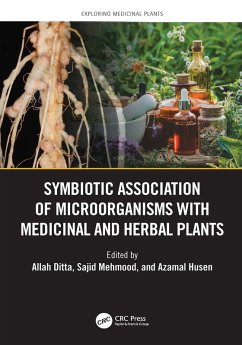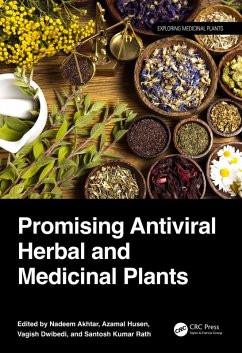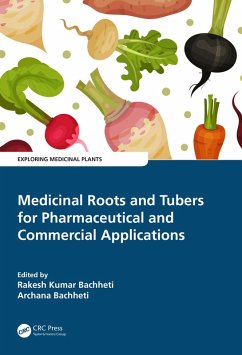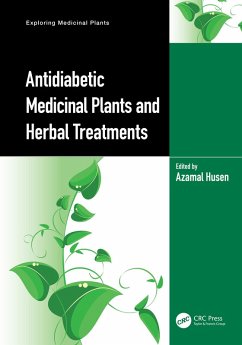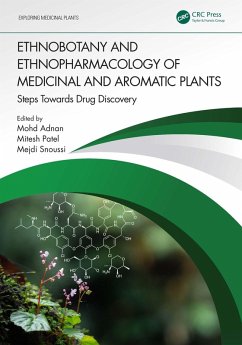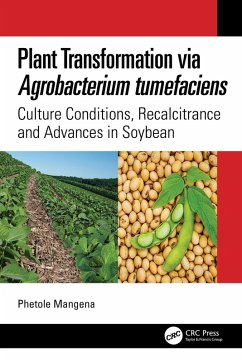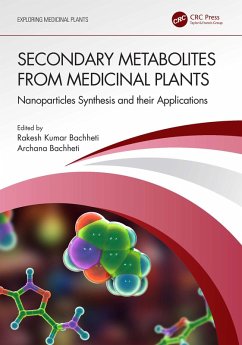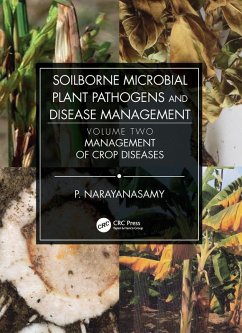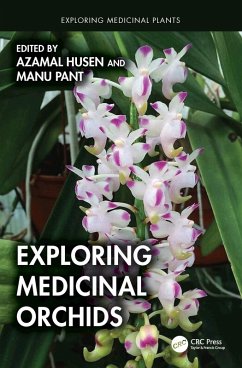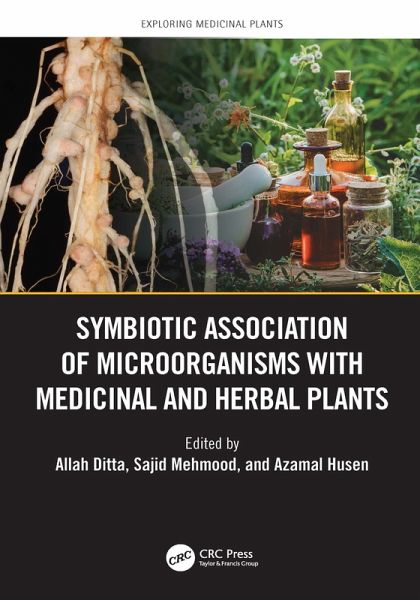
Symbiotic Association of Microorganisms with Medicinal and Herbal Plants (eBook, PDF)
Versandkostenfrei!
Sofort per Download lieferbar
52,95 €
inkl. MwSt.
Weitere Ausgaben:

PAYBACK Punkte
26 °P sammeln!
Research establishes that symbiotic association of microbes with medicinal and herbal plants enhance the growth and accumulation of bioactive materials, and that species of microbes including bacterial and fungal species play a key role. Symbiotic Association of Microorganisms with Medicinal and Herbal Plants identifies the important symbiotic association between microbes and medicinal plants, including perspectives in improving bioactive ingredients for the synthesis and preparation of pharmaceutical drugs.Features Provides a comprehensive overview of symbiotic association of microorganisms w...
Research establishes that symbiotic association of microbes with medicinal and herbal plants enhance the growth and accumulation of bioactive materials, and that species of microbes including bacterial and fungal species play a key role. Symbiotic Association of Microorganisms with Medicinal and Herbal Plants identifies the important symbiotic association between microbes and medicinal plants, including perspectives in improving bioactive ingredients for the synthesis and preparation of pharmaceutical drugs.
Features
A volume in the Exploring Medicinal Plants series, this book provides exciting information in a structured manner for scientists, researchers, and students working in various fields including medicinal plants, microbiology, economic botany, chemistry, biotechnology, pharmacognosy, and pharmaceuticals.
Features
- Provides a comprehensive overview of symbiotic association of microorganisms with medicinal and herbal plants
- Discusses the impacts of symbiotic association on the diversity, growth and chemical components of the medicinal and herbal plants
- Elaborates opportunities and future challenges regarding the understanding of symbiotic association between microbes and medicinal plants
A volume in the Exploring Medicinal Plants series, this book provides exciting information in a structured manner for scientists, researchers, and students working in various fields including medicinal plants, microbiology, economic botany, chemistry, biotechnology, pharmacognosy, and pharmaceuticals.
Dieser Download kann aus rechtlichen Gründen nur mit Rechnungsadresse in A, B, BG, CY, CZ, D, DK, EW, E, FIN, F, GR, HR, H, IRL, I, LT, L, LR, M, NL, PL, P, R, S, SLO, SK ausgeliefert werden.




